TASTING CLIMATE CHANGE
JANUARY 18-19-20, 2026
The fifth edition of TASTING CLIMATE CHANGE™ will take place in Montreal on January 18–20, 2026 at Marché Bonsecours, partner of the conference. Presented both in person and virtually, this international conference will bring together more than 500 participants from around the world. The program includes four masterclasses, two full days of conferences and panel discussions, four walk-around tasting sessions, and numerous networking opportunities. *New* There will be a simultaneous translator who will translate all conferences from English to French.
Sunday, January 18
9:30-12:00 - MASTERCLASSES
13:00-15:30 - MASTERCLASSES
Monday, January 19
8:00-8:15 - Registration
8:15-9:00 - Welcome address by Michelle Bouffard, Founder of Tasting Climate Change, and Jacques Farcy, President and CEO of the Société des alcools du Québec
9:00-12:00 - CONFERENCES
12:00-1:30 - Lunch & Walk-around tasting on the theme Seeking freshness
1:30-4:30 - CONFERENCES
4:30-6:00 - Networking & Walk-around tasting on the theme Good for you, good for the planet
Tuesday, January 20
7:45-8:00 - Registration
8:00-12:15 - CONFERENCES
12:15-1:45 - Lunch & Walk-around tasting on the theme Against All Odds
1:45-3:45 - CONFERENCES
3:45-17:15 - Networking & Walk-around tasting on the theme Good for you, good for the planet
SUNDAY, JANUARY 18
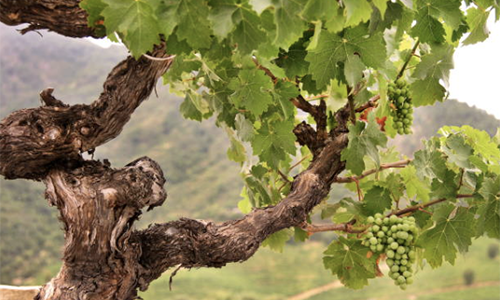
Old Vines in the Context of Climate Change
MASTERCLASS | 9:30-10:30
Sarah Abbott MW · Maria Giovanna Migliore · Rosa Kruger
This session explores how old vines and heritage viticulture are fundamental to the future of wine in the face of climate change. Sarah Abbott, Master of Wine and co-Founder of The Old Vine Conference, will highlight how old vines are arks of genetic diversity, viticultural craft, and heritage varieties. Wines from Old Vine Conference member wineries will exemplify how some of the most dynamic and admired wineries of the world are working specifically with old vines to increase resilience, quality and sustainability in their response to climate change.
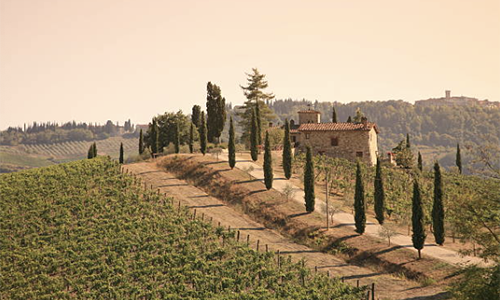
The Chianti Classico toolkit, a holistic approach to climate change
MASTERCLASS | 11:00-12:00
No wine region is immune to the effects of climate change and while broad issues may be similar from one to the next, the unique reality of each brings its own set of challenges - and opportunities. Chianti Classico provides a case study of a denomination marrying natural factors with human ones to mitigate challenges and continue producing territorial wines that preserve historic and cultural identity. Through a diverse selection, this seminar will explore altitude, exposure, biodiversity and native grape varieties along with specific techniques producers are applying in the vineyard and winery.
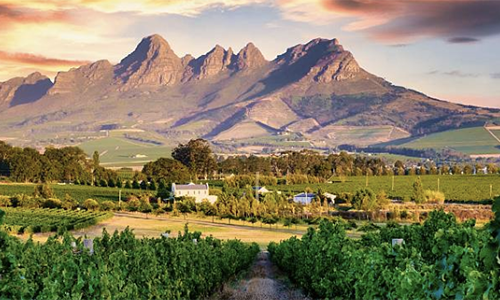
Learning from South Africa
MASTERCLASS | 1:00-2:00
Rosa Kruger · Etienne Neethling PhD
South Africa is a land of extremes, where drought and fires are a constant threat. Yet the country is thriving and more dynamic than ever. What lessons can other regions draw from South Africa to build a sustainable future?
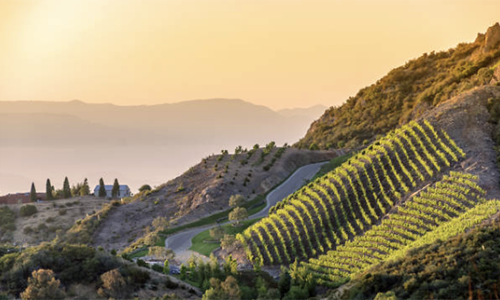
The Role of Viticulture in Climate Action
MASTERCLASS | 2:30-3:30
Farming is crucial for building resilience in vineyards as wine regions face climate change. In California, Napa Valley, Silicon Valley, and UC Davis combine world-class winegrowing, technological innovation, and viticultural research to create impactful solutions. Key Napa Valley producers use these opportunities to refine viticultural practices suited to their site and style goals, enhancing the environment and vineyards' agility. This seminar will explore the role of farming, location, and vigneron in developing a holistic approach to climate action and wine quality. Through three winery case studies, it will examine how vineyards can cool their environment and reduce greenhouse gas emissions, how soil health builds resistance to temperature changes, disease pressure, and smoke impact, and the importance of dry farming and cover crops in countering climate change.
MONDAY, JANUARY 19
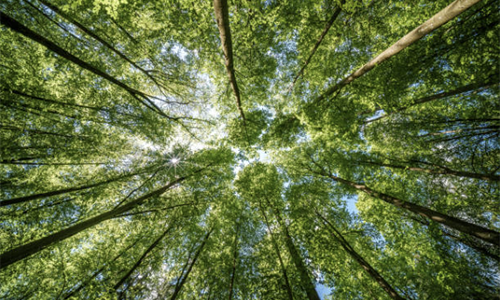
Wine production in a constant changing world
OPENING CONFERENCE | 9:00-9:45
Jean Lemire · Jerôme Dupras PhD
Climate change is profoundly transforming ecosystems and agricultural practices. Plastic pollution is also affecting marine and terrestrial habitats and poses a threat to public health. In this conference, climate change envoy Jean Lemire and researcher Jérôme Dupras will present a global overview of the current state of science on upcoming environmental and climate impacts. They will also highlight the essential role of biodiversity as a lever for resilience and adaptation for the future of our terroirs.
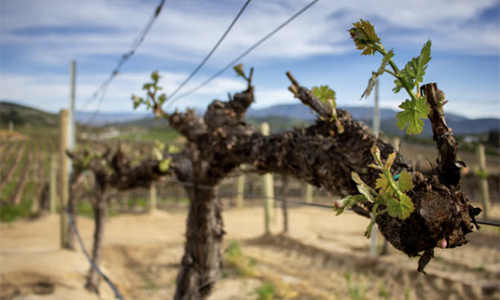
Vines and grape variety: a perpetual evolution, from yesterday to tomorrow
CONFERENCE | 10:00-11:00
The history of the vine has recently become clearer: it originated in the Middle East 11,500 years ago, and the domesticated grapes were propagated towards the West. On the way, they evolved genetically, establishing the current grape varieties. From Europe, they spread throughout the world... while they became less diverse, particularly after phylloxera. Today, faced with diseases (especially fungi) and climate change, our grape varieties must evolve and adapt. Solutions already exist: come and discuss these adaptations, keeping in mind that domesticated vines and viticulture must reconnect with the capacity to evolve that built their history and their successes.
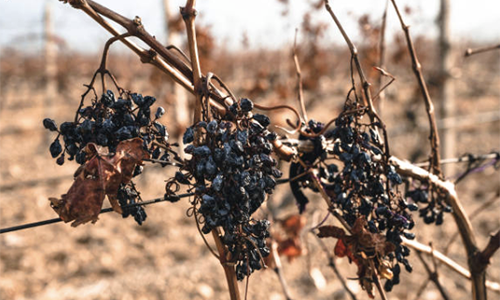
Building Resilience
CONFERENCE | 11:00-12:00
Climate change is a harsh new reality in many countries. Heatwaves, less rain, floods and fires is asking of us to look at farming and viticulture differently. New ways to design vineyards that flow with the natural landscape, that capture and store rainwater effectively and improve soil health might help farmers to become more climate resilient. Migrant or seasonal labour is used in many countries to work the vines. Vine schools for vineyard workers can provide a deeper, shared understanding of viticultural techniques necessary for survival in future.
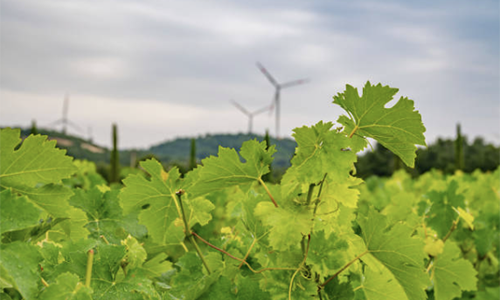
Regenerative viticulture – Building a sustainable future
PANEL | 1:30-2:30
Isabel Gassier · Fanny Courtial · Becky Sykes
Regenerative viticulture is seen as the new gold standard in sustainability. The Rodale Institute estimates that if all agriculture adopted regenerative practices, we could sequester 100% of current CO₂ emissions. Our panelists will explore why regenerative viticulture matters, how it strengthens soil health and biodiversity, and what it means for the future of wine.
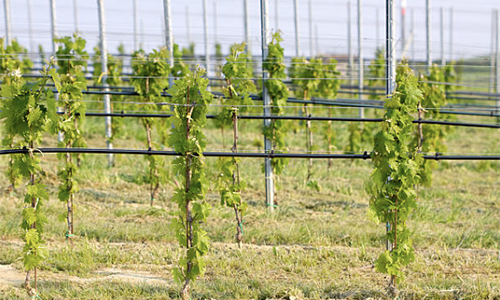
Water Management –
Every Drop Counts
PANEL | 2:30-3:30
Kosta Bakasietas · Edouard Guérin · Will Drayton
Water is one of the most precious resources in wine production, yet also one of the most threatened by climate change. This panel will bring together experts and producers to discuss innovative strategies for water management — from irrigation practices to soil health and regenerative solutions — and explore how the wine industry can adapt to increasing water scarcity.
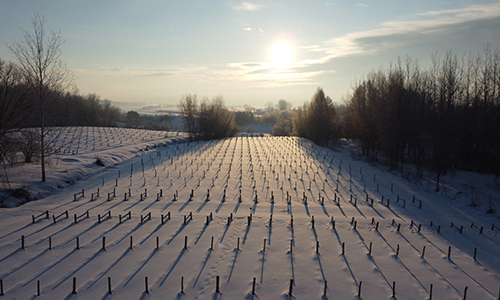
North American Frontiers – Emerging Wine Regions
PANEL | 3:30-4:30
Gabriel Demarco · Vincent Laniel · Ria D'Aversa
Québec, Ontario, and New York are often seen as regions poised to benefit from climate change, with longer growing seasons and new grape varieties becoming viable. But is that truly the case? Alongside these opportunities come significant challenges — from frost and humidity to shifting consumer perceptions. This panel will bring together producers to explore both sides of the story: the promise, the risks, and what the future may hold for these emerging cool-climate regions.
TUESDAY, JANUARY 20
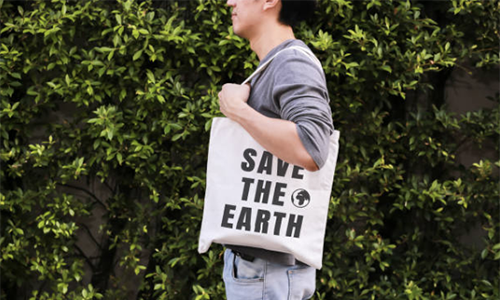
Understanding Consumer Perceptions of Climate Change
CONFERENCE | 8:00-9:00
How can we get consumers to positively react to climate change? By first understanding what drives their (lack of) behaviour. This conference focuses on key psychological drivers that consumers rely on as well as market forces that may help but sometimes hinder climate change acceptance by consumers.
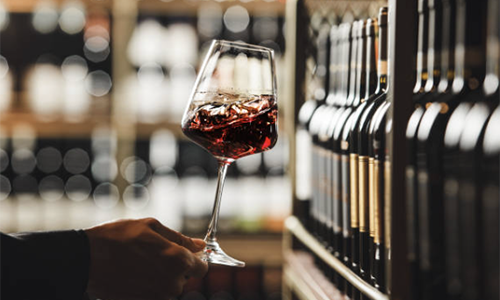
Buying Power – The Role of Wine Buyers in a Changing Climate
PANEL | 9:00-10:00
Ines Castillo · Michele Manelli · Marcus Ihre
Wine buyers hold significant influence in shaping a more sustainable industry. This panel will explore how purchasing decisions, certification standards, and market expectations intersect to drive climate action in wine. Panelists will also share the challenges and opportunities they face when balancing sustainability with consumer demand.
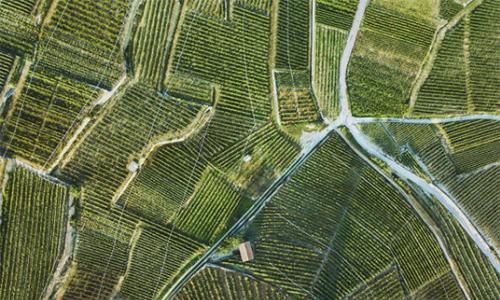
No to Greenwashing – Building Real Sustainability in Wine
PANEL | 10:15-11:15
Alessio Planeta · Felicity Carter · Sandro Bottega
As sustainability gains momentum in the wine industry, the risk of greenwashing grows. This panel will explore how producers, buyers, and certification bodies can ensure that claims are credible and transparent. Panelists will discuss strategies to communicate real progress, avoid misleading messaging, and build consumer trust.
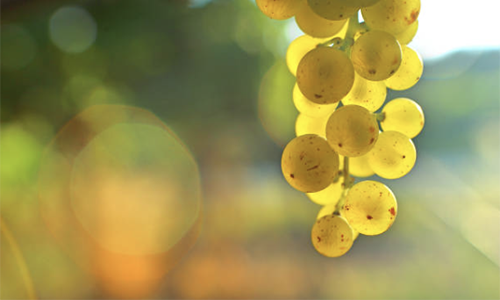
Financial Sustainability – Securing the Future of Wine
PANEL | 11:15-12:15
Etienne Neethling PhD · Anne Bousquet · Séverine Pinte
Environmental efforts alone are not enough — wineries must also be financially sustainable to thrive. This panel will explore the economic realities of running a wine business in a changing climate. Panelists will discuss strategies to remain profitable while investing in sustainable practices, from managing rising costs to building long-term resilience.
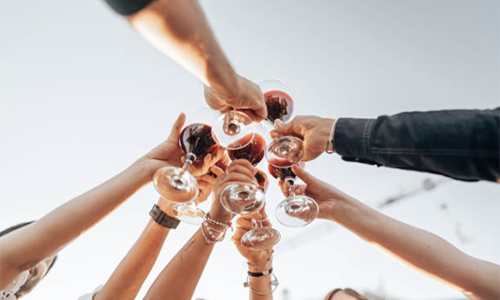
Shaping the Narrative – The Role of Communicators in Sustainable Wine
PANEL | 1:45-2:45
Felicity Carter · Véronique Rivest · Tara Q. Thomas
Educators, journalists, and influencers play a vital role in how sustainability in wine is understood and embraced. This panel will explore how effective communication can inspire change, counter misinformation, and connect consumers with authentic stories. Panelists will share how their work helps bridge the gap between producers and the public to build a more sustainable wine culture.
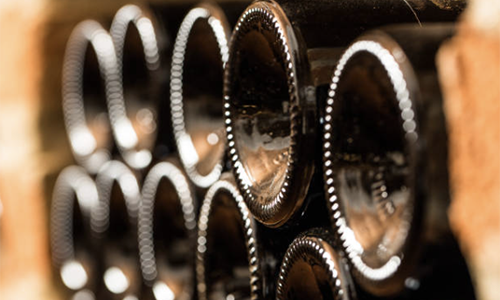
The Hidden Side of Wine – Making the Supply Chain Sustainable
PANEL | 2:45-3:45
Christian Marier-Pilon · Anna Brittain · Antoine El Naccour
Every step of the supply chain has an impact on the wine industry’s sustainability, from packaging and transport to distribution and retail. This panel will examine how supply chain decisions influence carbon footprints and resource use. Panelists will discuss innovative practices, challenges, and collaborations that can make the journey from vineyard to consumer more sustainable.
